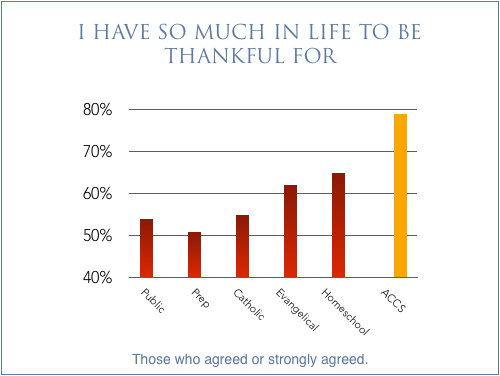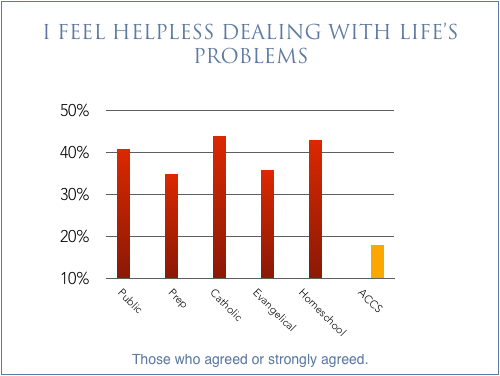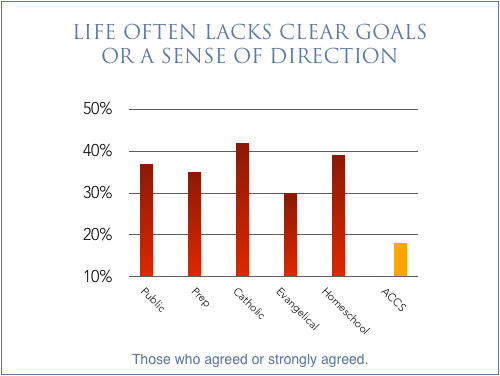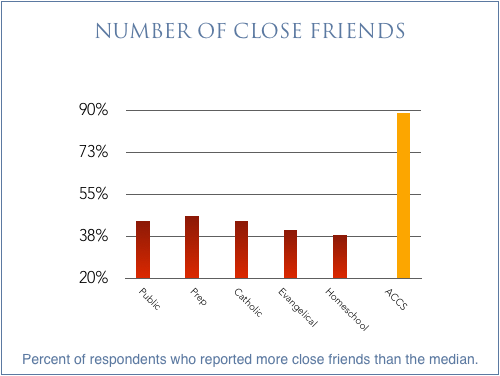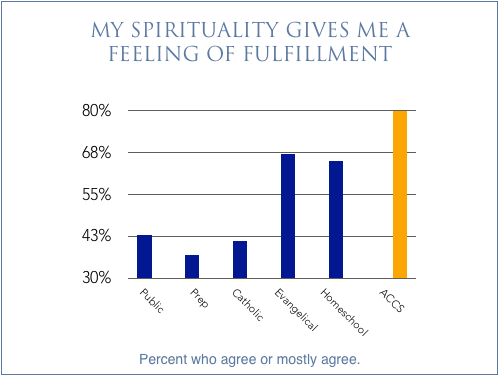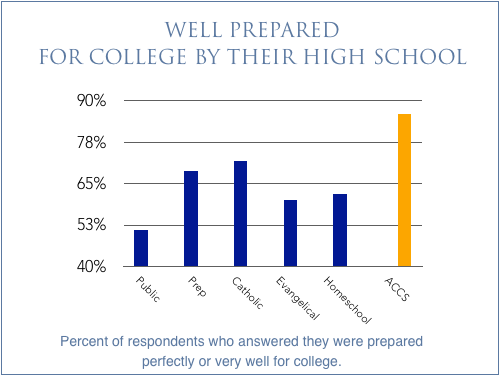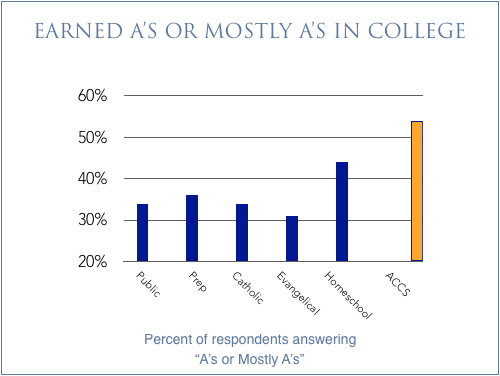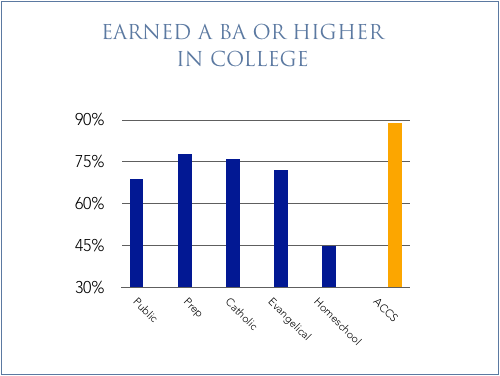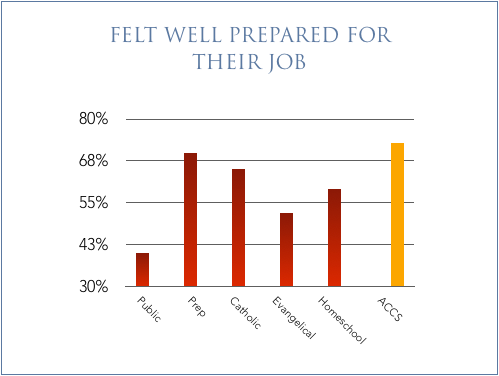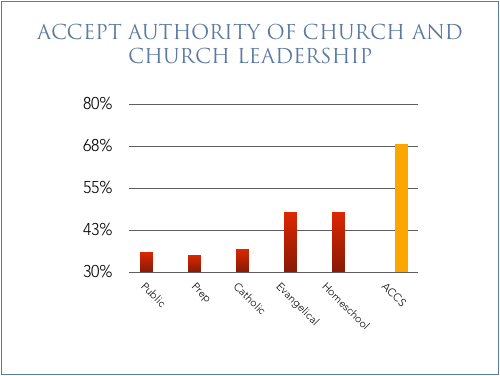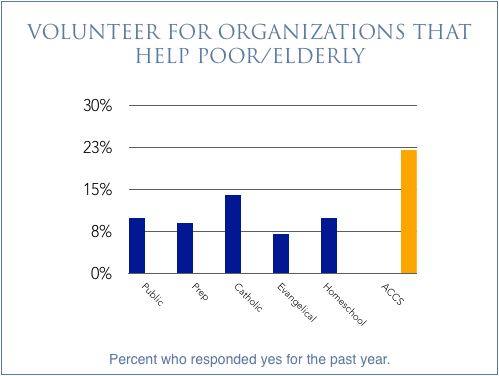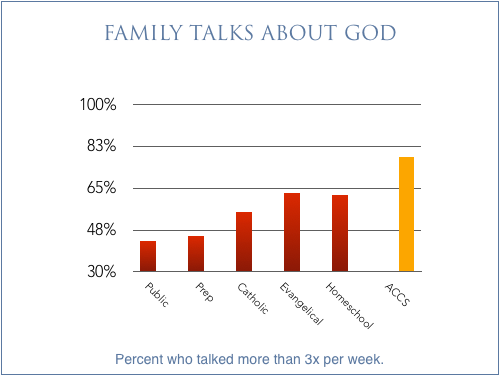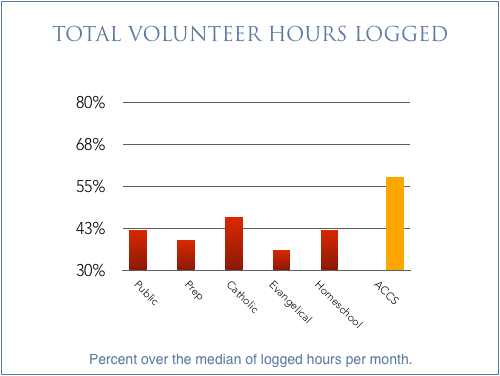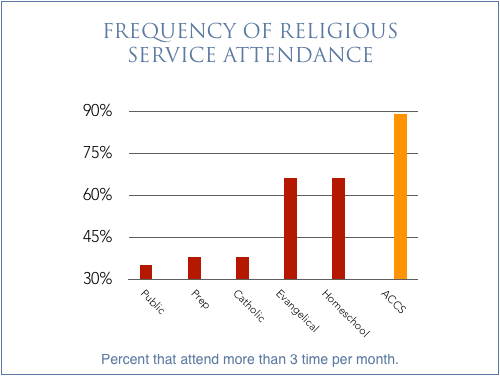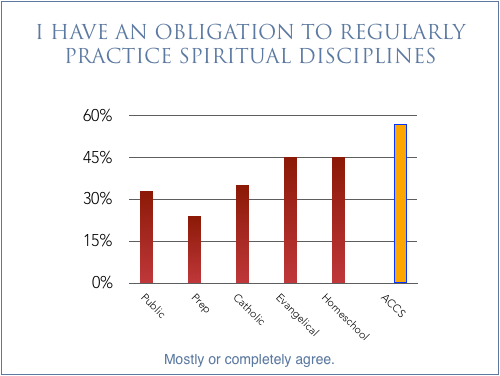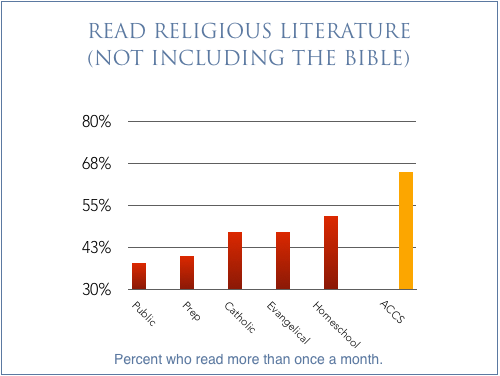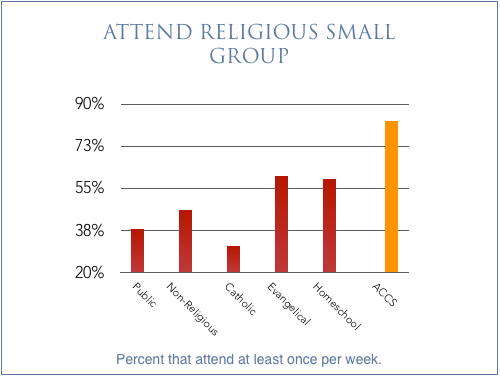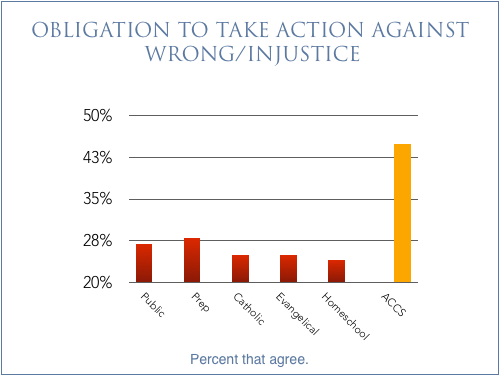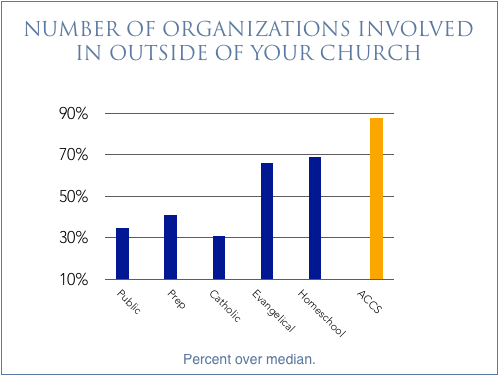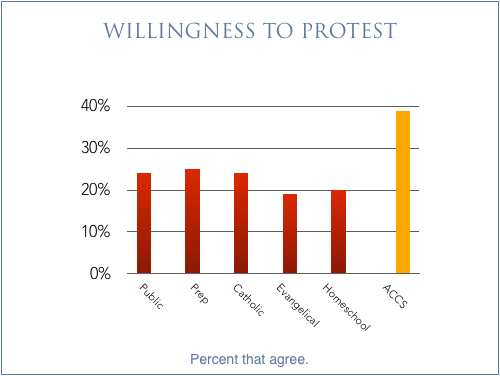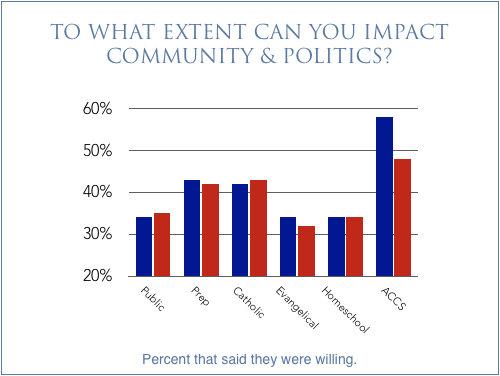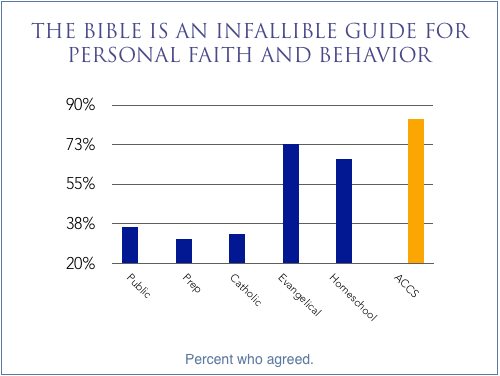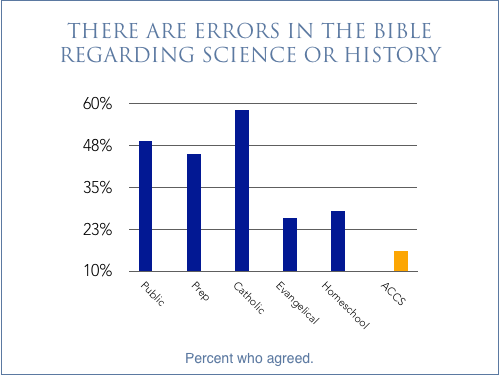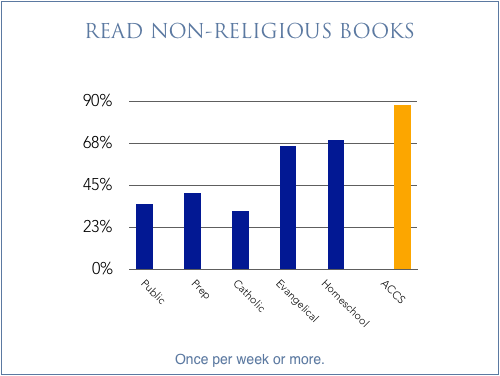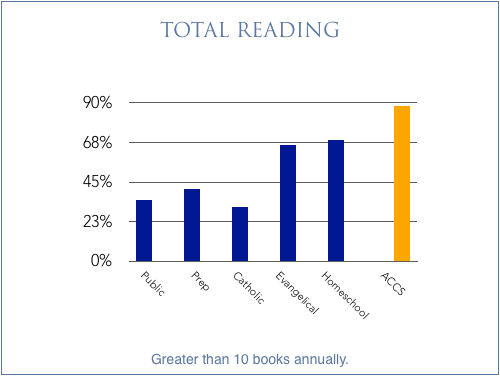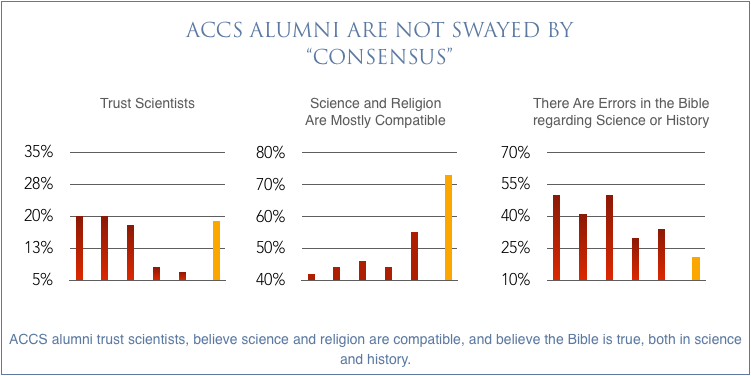Good Soil
A comparative view
7 LIFE OUTCOMES OF ACCS ALUMNI
![]()
2018-19 comparative study of 24-42 year old alumni from public, secular private, Catholic, evangelical Christian, religious homeschool, and ACCS (classical Christian) schools, on topics of life-choices, preparation, attitudes, values, opinions, and practices.
This research seems to confirm what history has repeatedly demonstrated—classical Christian education can influence the course of a home, a community, or a nation. Understandably, some will view the results of this survey skeptically because of the significant differences between classical Christian schools and the others surveyed. These results can be understood more fully by visiting the ACCS schools themselves.
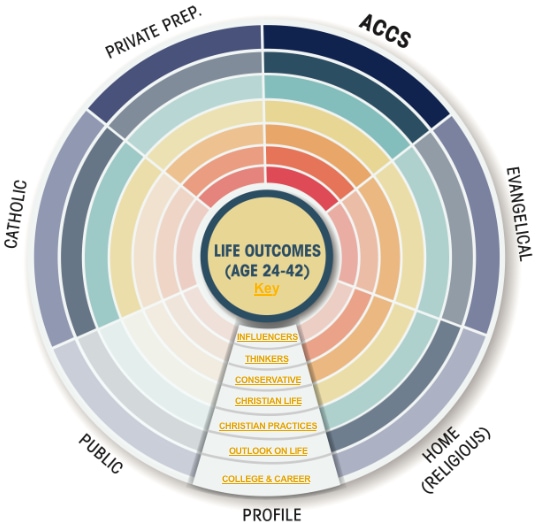
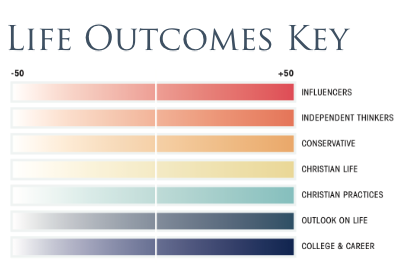
Click the orange titles on the wheel above to see composite charts. Blue bars are actual data. Red bars reflect the school’s effect, isolated from other family factors.
Continue scrolling for more detail.
View or download the full 57-page report (PDF) (3MB)
Questions & Answers
During the 1990s, families in about 100 communities across the United States started classical Christian schools with the hope of offering an education that would assist parents in raising their children in the paideia of the Lord. The question almost thirty years later is: “To what extent have the goals of classical Christian education been realized?” To that end, the ACCS commissioned a study by the University of Notre Dame’s Sociology Department.
Understandably, some will view the results of this survey skeptically because of the significant differences between classical Christian schools and the others surveyed. These results can be understood more fully by visiting the ACCS schools themselves. Arguably, the greatest distinctive is integration—the intentional way that the subjects and Christian truth are interwoven. Every class and every school activity has one purpose: to see God’s world rightly and to glorify Him. These communities are tight-knit, serious but joyful, and eminently curious. And, there is room for improvement. We invite Christians to join a local ACCS school on this journey.
Research & Analysis: Dr. David Sikkink, University of Notre Dame, Sociology Department (non-ACCS comparative data)
Association of Classical Christian Schools (Sponsorship)

